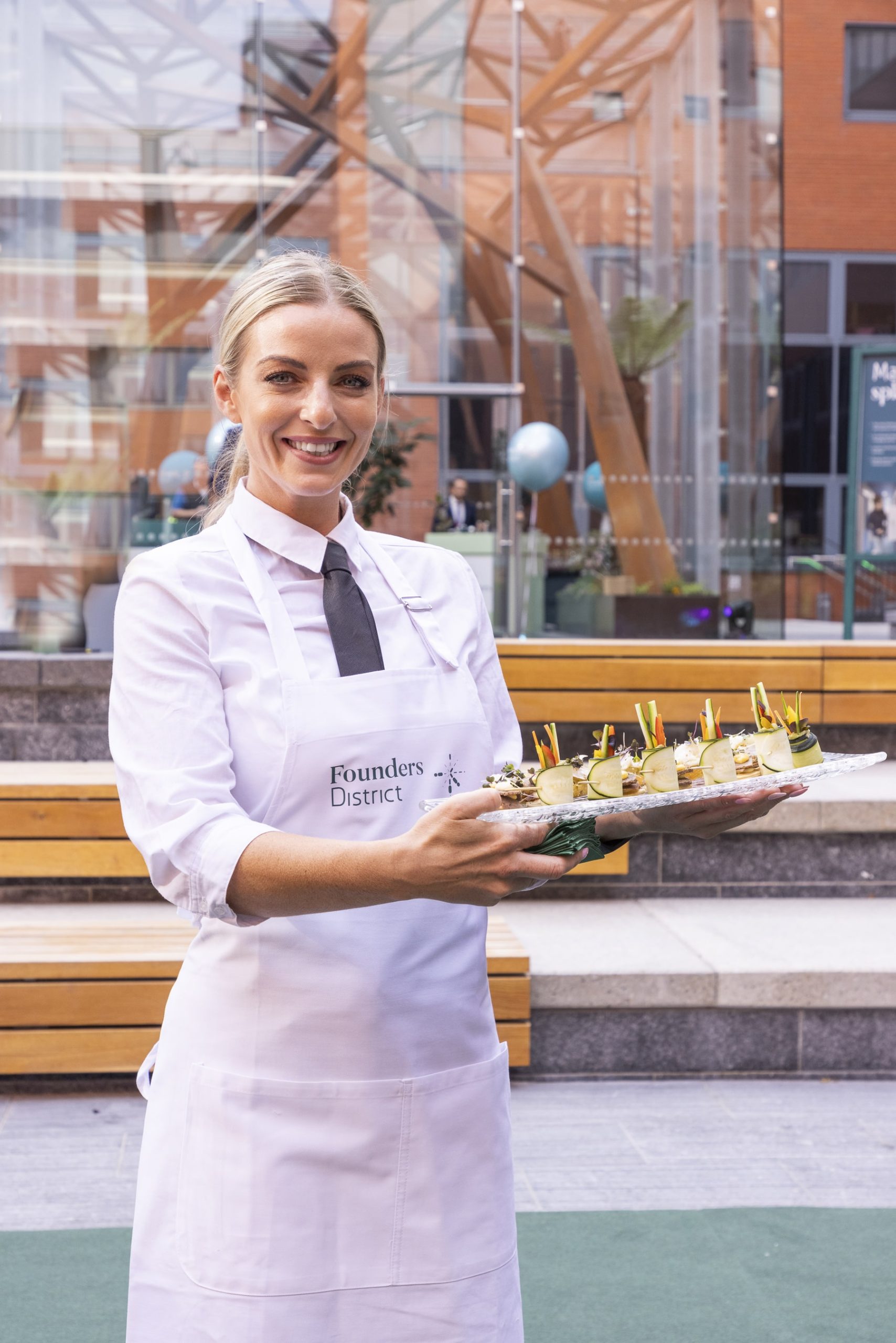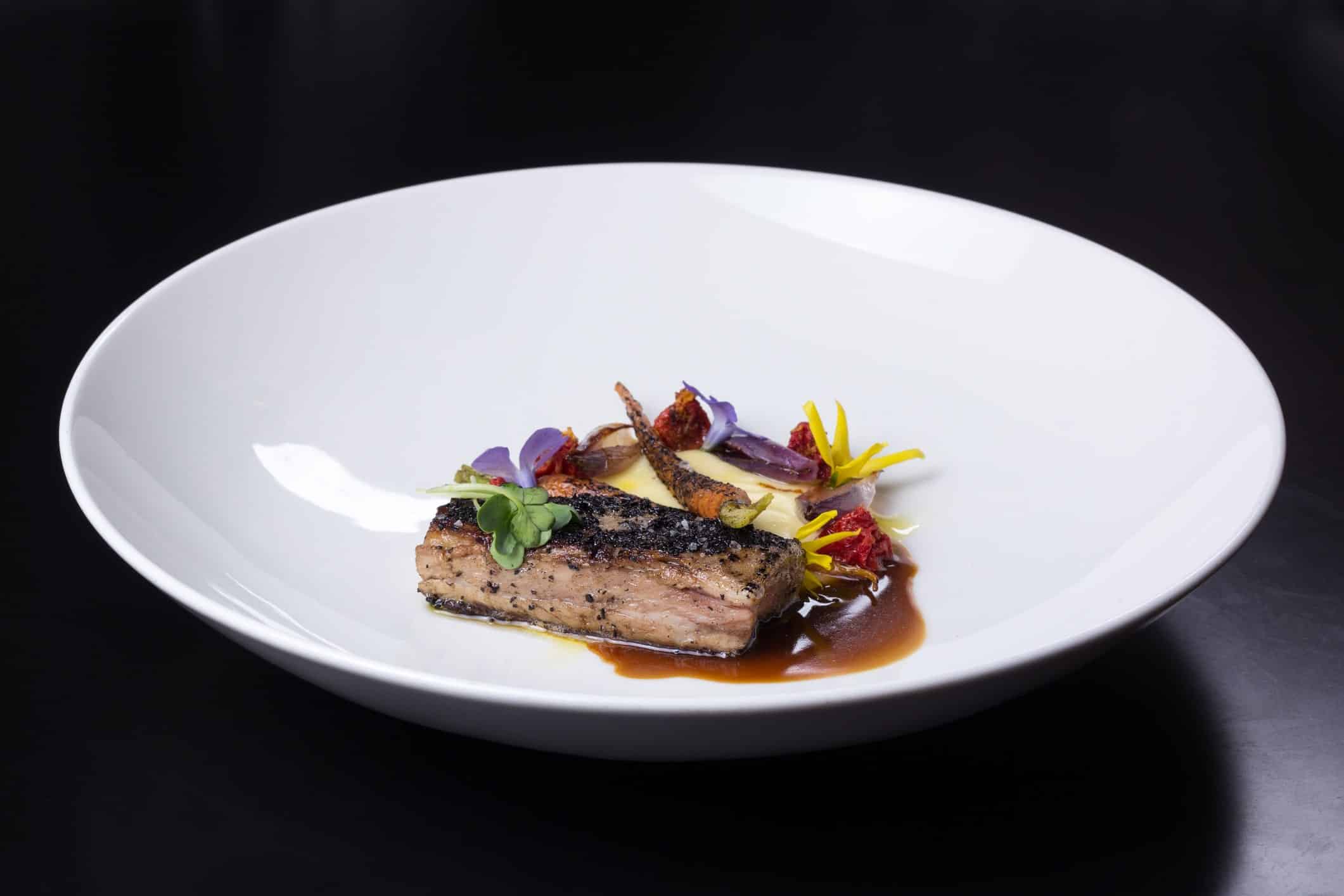Catering companies differ from one another in their cuisine specialties, service styles, size capabilities, pricing structures, staffing approaches, and venue relationships. Finding the right match means looking further than menus to how catering companies align with your specific event needs. Berman & Wallace stands out among catering companies in Dublin through our commitment to locally-sourced ingredients and adaptable service for events of all sizes.
Cuisine Focus Areas
Food specialisation creates natural distinctions between providers in the market. Some catering companies build their reputation around specific cultural cuisines, from authentic Italian to traditional Irish to contemporary Asian fusion. Other catering companies concentrate on particular meal types, like breakfast meetings, cocktail receptions, or formal plated dinners. Dietary specialisation distinguishes certain catering companies that focus primarily on vegetarian, vegan, or health-conscious menus. Ingredient sourcing philosophies vary widely among catering companies, from those emphasising local producers to others prioritising organic certification or sustainable practices. These culinary approaches help clients find providers whose food style naturally matches their event vision.
Size and Capacity Variations
Operational scale creates practical differences that affect which events suit different providers. Small boutique catering companies often excel at intimate gatherings where personalised service and culinary detail receive emphasis. Mid-size catering companies typically offer balanced versatility, handling both modest gatherings and larger functions with adaptable approaches. Large-scale catering companies maintain the equipment, staff, and production facilities for substantial events with hundreds or thousands of guests. Understanding these capacity differences helps clients avoid choosing catering companies too small for their needs or paying premium prices from larger operations when unnecessary. The best fit balances adequate resources with appropriate attention to your specific event.
Service Style Options
Presentation and delivery methods vary across the industry. Traditional served meals remain popular with many catering companies, offering formal dining experiences with staff attending to seated guests. Buffet specialists among catering companies focus on creating attractive self-service displays with efficient guest flow and portion management. Food station concepts distinguish some catering companies, with interactive cooking or assembly areas that combine entertainment with dining. Cocktail service specialists design menus around passed small bites and drinks rather than full meals. Delivery-focused catering companies provide drop-off service without onsite staff, ideal for casual office functions or simple gatherings. These service approaches shape both the practical and atmospheric aspects of your event.
Catering Companies’ Contract Differences
Business terms create important practical distinctions worth examining closely. Pricing structures vary among catering companies, from all-inclusive packages to itemised billing that separates food, service, equipment, and extras. Deposit requirements differ substantially, with some catering companies requiring 50% upfront while others ask for smaller initial commitments. Cancellation policies show wide variation between catering companies, particularly regarding refundability timeframes and weather contingencies for outdoor events. Minimum spending requirements appear in many catering companies’ contracts, sometimes with different thresholds for weekends versus weekdays. These business practices affect both budgeting and flexibility as your event plans develop.
Staff Training Approaches
The team serving your guests creates lasting impressions beyond just the food quality. Service standards vary among catering companies, from formal silver service to more casual, conversational approaches depending on their typical events. Staff appearance policies differ, with some catering companies using standardised uniforms while others adapt attire to match specific event themes. Experience requirements for hiring show variation between catering companies, affecting the overall polish and problem-solving capabilities of their teams. Management presence onsite follows different models, with some catering companies sending supervisors for all events while others reserve this for larger functions. These staffing practices directly influence how smoothly service unfolds and how guests experience your event.
Venue Relationships
Location partnerships often shape which catering companies work best for specific settings. Exclusive venue contracts limit options at certain locations, restricting choice to pre-approved catering companies or requiring additional fees for outside providers. Preferred vendor lists at other venues offer discounted access to facilities for select catering companies without completely restricting options. Experience with particular venues gives certain catering companies advantageous familiarity with facility limitations, access points, and operational quirks. Insurance and liability requirements vary among venues, with some catering companies maintaining broader coverage that easily meets various location demands. These venue connections can simplify planning while sometimes affecting which catering companies make your shortlist for consideration.


